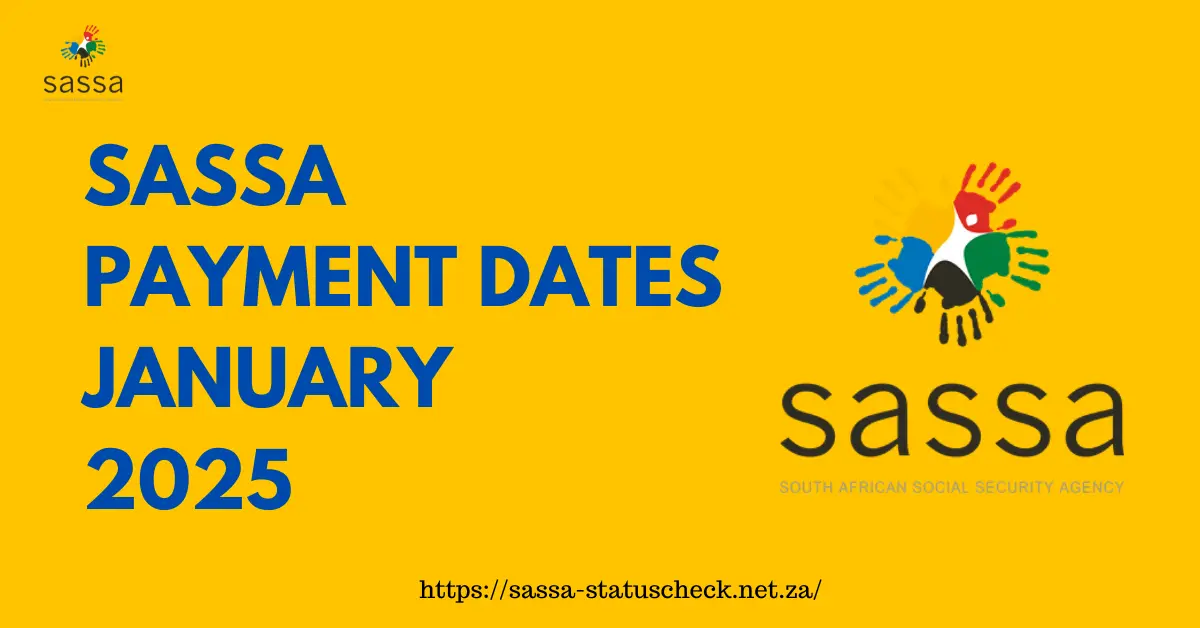The South African Social Security Agency (SASSA) plays a vital role in supporting vulnerable individuals and families across the nation. Their social grants provide a critical safety net, ensuring access to basic necessities. However, navigating the intricacies of the SASSA payment system can sometimes be confusing, especially with regards to payment dates. This comprehensive guide delves into the world of SASSA Payment Dates January 2025, aiming to empower beneficiaries with all the necessary information.
Scheduled Payment Dates
- Older Persons Grant: Friday, January 3rd, 2025
- Disability Grants: Monday, January 6th, 2025
- Children’s Grants: Tuesday, January 7th, 2025
Understanding SASSA Payment Dates January 2025S Grant Categories
SASSA offers a variety of social grants to cater to the diverse needs of different segments of the population. Knowing your specific grant category is crucial for understanding the applicable payment schedule:
- Older Persons Grant: This grant provides financial assistance to South African citizens aged 60 and above.
- Disability Grant: This grant offers support to individuals with permanent disabilities that limit their ability to work and earn a living.
- Child Support Grant: This grant provides financial assistance towards the upbringing of children under the age of 18, particularly those who have lost one or both parents or whose parents are unable to support them financially.
- Foster Care Grant: This grant offers financial support to caregivers who are looking after children in foster care.
- War Veterans Grant: This grant provides financial assistance to veterans who served in the South African National Defence Force (SANDF).
- Care Dependency Grant: This grant offers support to individuals who require full-time care from another person due to a severe disability.
- Grant in Aid: This grant is a discretionary grant provided to individuals or families in situations of social distress.
Understanding Payment Variations: ID Number and Staggered Release
It’s important to note that the specific date you receive your SASSA grant may differ slightly from the general payment dates mentioned above. This is because SASSA distributes payments based on the last three digits of your South African ID number. This staggered release system helps to manage the disbursement process efficiently and avoid overwhelming the banking infrastructure.
What to Do if Your Payment is Late:
While SASSA strives for a streamlined payment process, occasional delays can occur. Here’s what you can do if your payment seems late:
- Double-check the Payment Schedule: Confirm the anticipated payment date for your specific grant category. You can find this information on the SASSA website or by contacting their call center.
- Verify Your Banking Information: Ensure that your bank details are accurate and up-to-date with SASSA. Any discrepancies can delay payment processing.
- Utilize the Status Check Portal: The SASSA status check portal allows you to view the current status of your grant application or payment. If there’s an issue with your application or payment, the portal may offer relevant information.
- Contact SASSA: If you’ve exhausted all other options and your payment remains significantly delayed, contact SASSA directly through their website or call center. Their representatives can investigate your case and provide further assistance.
Conclusion
The SASSA Payment Dates for January 2025 serve as a vital guide for beneficiaries navigating South Africa’s social grant system. Understanding the diverse grant categories and their corresponding payment schedules is crucial for recipients to access timely support. While SASSA strives for efficiency, occasional delays can occur, prompting individuals to verify their banking information and utilize available resources like the status check portal. By staying informed and proactive, beneficiaries can mitigate potential payment issues and ensure continued financial assistance. Ultimately, the SASSA payment system remains a cornerstone of social welfare in South Africa, providing a critical safety net for vulnerable individuals and families across the nation.

